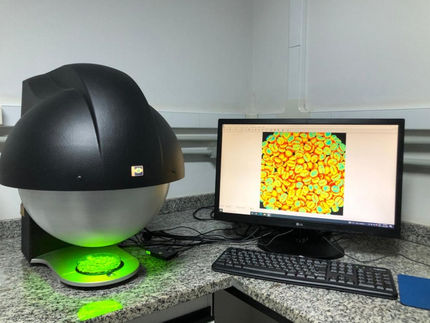Déjà brew?
Another shot for lovers of coffee
Long black, espresso, or latte, whatever your coffee preference, drink too much and you could be in hot water, especially when it comes to heart health.

Photo by Christiana Rivers on Unsplash
In a world first genetic study, researchers from the Australian Centre for Precision Health at the University of South Australia found that that long-term, heavy coffee consumption – six or more cups a day – can increase the amount of lipids (fats) in your blood to significantly heighten your risk of cardiovascular disease (CVD).
Importantly, this correlation is both positive and dose-dependent, meaning that the more coffee you drink, the greater the risk of CVD.
It’s a bitter pill, especially for lovers of coffee, but according to UniSA researcher, Professor Elina Hyppönen, it’s one we must swallow if we want keep our hearts healthy.
“There’s certainly a lot of scientific debate about the pros and cons of coffee, but while it may seem like we’re going over old ground, it’s essential to fully understand how one of the world’s most widely consumed drinks can impact our health,” Prof Hyppönen says.
“In this study we looked at genetic and phenotypic associations between coffee intake and plasma lipid profiles – the cholesterols and fats in your blood – finding causal evidence that habitual coffee consumption contributes to an adverse lipid profile which can increase your risk of heart disease.
“High levels of blood lipids are a known risk factor for heart disease, and interestingly, as coffee beans contain a very potent cholesterol-elevating compound (cafestol), it was valuable to examine them together.
“Cafestol is mainly present in unfiltered brews, such as French press, Turkish and Greek coffees, but it’s also in espressos, which is the base for most barista-made coffees, including lattes and cappuccinos.
“There is no, or very little cafestol in filtered and instant coffee, so with respect to effects on lipids, those are good coffee choices.
“The implications of this study are potentially broad-reaching. In my opinion it is especially important for people with high cholesterol or who are worried about getting heart disease to carefully choose what type of coffee they drink.
“Importantly, the coffee-lipid association is dose-dependent – the more you drink unfiltered coffee the more it raises your blood lipids, putting you at greater risk of heart disease.”
Globally, an estimated 3 billion cups of coffee are consumed every day. Cardiovascular diseases are the number one cause of death globally, taking an estimated 17.9 million lives each year.
The study used data from 362,571 UK Biobank participants, aged 37-73 years, using a triangulation of phenotypic and genetic approaches to conduct comprehensive analyses.
While the jury still may be out on the health impacts of coffee, Prof Hyppönen says it is always wise to choose filtered coffee when possible and be wary of overindulging, especially when it comes to a stimulant such as coffee.
“With coffee being close to the heart for many people, it’s always going to be a controversial subject,” Prof Hyppönen says.
“Our research shows, excess coffee is clearly not good for cardiovascular health, which certainly has implications for those already at risk.
“Of course, unless we know otherwise, the well-worn adage usually fares well – everything in moderation – when it comes to health, this is generally good advice.”
Most read news
Topics
Organizations
Other news from the department science

Get the food & beverage industry in your inbox
By submitting this form you agree that LUMITOS AG will send you the newsletter(s) selected above by email. Your data will not be passed on to third parties. Your data will be stored and processed in accordance with our data protection regulations. LUMITOS may contact you by email for the purpose of advertising or market and opinion surveys. You can revoke your consent at any time without giving reasons to LUMITOS AG, Ernst-Augustin-Str. 2, 12489 Berlin, Germany or by e-mail at revoke@lumitos.com with effect for the future. In addition, each email contains a link to unsubscribe from the corresponding newsletter.




























































